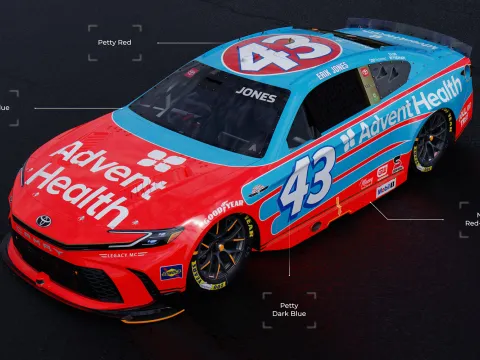- AdventHealth

We often think about children discovering new food allergies, though it can happen to adults as well. Just this past year, singer Ariana Grande had to postpone two shows after her throat “pretty much closed” due to a tomato allergy.
Your body’s immune system defends you against intruders every day without you having to lift a finger. But instead of targeting viruses or bacteria, this system can sometimes be mistakenly triggered by the food we eat.
If you and your doctor believe you have a food allergy, you’ll likely need testing. This usually comes in two forms: a blood test or a scratch test. Blood tests for food allergies work by searching for what are called antibodies, which are reactions by your immune system to chemicals it perceives as threats.
Our labs offer quick, convenient blood tests for dozens of foods and drinks, including nuts, fish and dairy products.
The second form of food allergy testing works by placing the allergen on your skin and pricking it lightly. If you get a bump or hive, you’re probably allergic.
If you have an allergy, your doctor will work with you on a plan that keeps you safe.
Avoiding the food, of course, is task number one, but simply avoiding a food to which you think you’re allergic is not a good solution. If you’re accidentally exposed to the food, you won’t have a life-saving medicine unless you see a doctor. You could also be unnecessarily missing out on a food you enjoy.
A 2019 study found that about one in five adults believe they have a food allergy and more than one in 10 U.S. adults actually had one. Half of them began in adulthood.
Here are the most common food allergies identified in the study:
- shellfish
- peanut
- milk
- tree nut
- fin fish
If you think you may have a food allergy, it’s important to get it checked out. It can be hard to predict how serious the next reaction can be.
Is It an Allergic Reaction?
First, let’s describe what food allergies aren’t. Many people get an upset stomach or feel gassy after they eat or drink dairy products, sometimes called lactose intolerance. Technically, this isn’t an allergy because the problem isn’t caused by your immune system.
It still might cause discomfort, but there’s probably not a risk of life-threatening complications as with a real food allergy.
If you notice the following happening after you eat — often within minutes of eating a food — you may have an allergy:
- Swelling of the face, tongue, throat or other body parts
- Hives (pale red bumps)
- Vomiting, nausea or diarrhea
- Itchiness or tingling in the mouth or elsewhere
Some of these symptoms are minor, so it’s tempting to put them off. That would be a mistake.
Eating a certain food today could leave you feeling sick, while eating the same food tomorrow could be fatal.
What’s ‘Anaphylaxis?’
When the immune response is serious enough, it can put the body into anaphylactic shock. This is a true medical emergency, and its signs include:
- Rapid pulse or heart rate
- Trouble breathing or feeling like there’s a lump in your throat
- Feeling light-headed or dizzy
You may have heard about or seen someone who carries a small injector, commonly referred to by its brand name “EpiPen,” to be used for serious allergic reactions. This device has a natural hormone called epinephrine that has for decades been the go-to medicine for treating anaphylaxis.
Becoming aware you have a food allergy is the first step to a potentially life-saving prescription for an epinephrine injector.
It’s important to talk to your primary care doctor about whether allergy testing might be right for you. Visit our website to find a doctor or schedule a lab appointment that will support you as you strive toward health in body, mind and spirit.


